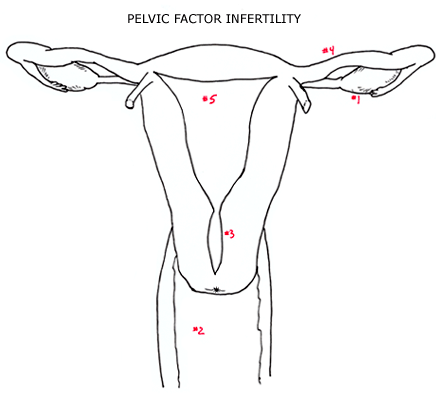|

Pelvic factor infertility can include any condition or event that interferes with the ability of an egg to meet a sperm (normally within the fallopian tube) or the subsequent implantation of a resulting embryo (fertilized egg).
Generally, a mature egg develops within an ovarian cyst (follicle) and normally is released into the pelvis at ovulation (#1). Sperm is released into the vaginal vault during sexual intercourse (#2) and during or shortly after intercourse some of the sperm will move from the semen into the cervical mucus (#3). The sperm cannot survive in the vagina due (largely) to a difference in pH (acidity) between semen (alkalinic) and the vaginal canal (acidic). Sperm that has successfully moved into the (more friendly) cervical mucus then travels up to the fallopian tube periodically “looking for eggs.” Human fertilization normally occurs in the fallopian tube (#4) and the pre-implantation embryo subsequently enters the uterine cavity. Implantation normally occurs within the uterine cavity (#5).
|

|